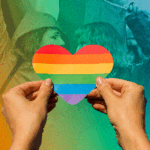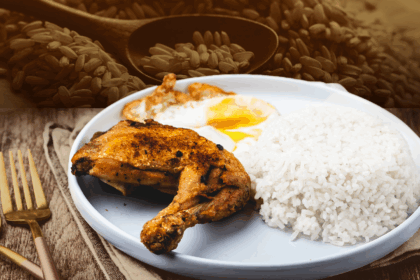Everyone wants to be a winner.
The kind who wears medals, holds trophies, and stands proudly at the top — admired for crossing the finish line first and defying the odds. In society’s eyes, they are living proof that hard work and sacrifice lead to glory.
However, in the Filipino households, being a champion looks different. It means being the first to leave the house and the last to eat at dinner, putting in triple the effort just to survive, and quietly stretching every peso to keep the family alive. Here, the true winners are not found on podiums — they go by another name: the breadwinner.
To carry that title is to bear a role that demands constant giving of time, resources, and pieces of oneself. Because when winning is defined by how much one can endure, it is worth asking: at what cost does one stay at the top?
Let us explore what it truly means to “win,” and unpack the culture behind the breadwinner badge.
Forced to grow up too soon
For many Filipino breadwinners, the starting gun fires long before they are finished growing. Often, it begins in adolescence when a parent falls ill, a sibling needs tuition, or a job arrives that cannot be declined.
That is how the race began for Rey Ann Mendoza, the eldest in a family of seven from Batangas Province. At eighteen, she folded her uniform and shelved her school supplies, stepping away from her studies to keep the lights on at home.
“Para ka na ring nagka-anak at very young age. Ang hirap po talagang mag-budget and at the same time, kung marami kayo sa family [ninyo],” she shared in an interview with CNA Insider.
The 22-year-old breadwinner works full-time at an investment bank in Manila. On some days, she also takes on hosting gigs for events to earn a little more. Almost 80% of her salary goes toward her family’s daily expenses, a commitment that keeps the household running and her loved ones afloat.
Aside from Rey Ann, this is the reality for millions of youth because in the academic year 2022-2023, over 10.7 million individuals aged five to 24 were classified as out-of-school, according to the Philippine Statistics Authority (PSA). In many cases, it is the eldest or most capable child who is expected to put education aside, set their dreams on pause, or migrate to unfamiliar places to provide for the family.
This growing population of early providers often enters the workforce without completing education, lowering their long-term capacity — and potentially lock future generations into the same cycle.
Unlike traditional champions who train for glory, these “winners” are thrust into the race to simply live. Their victories are counted in the bills paid, remittances sent home, and responsibilities shouldered at an age when others are just starting to dream.
No rest, just tests
Once the breadwinner’s race has begun, it seldom ends. Many Filipino providers must hurdle exhaustion, hunger, and the limit of what their bodies can endure to keep pace with responsibility.
For Danieca Goc-ong, known to many online as Teacher DanVibes, this reality came crashing in the moment she graduated. As the seventh child, she became the first in her family to finish school, and with that achievement came a heavy crown: she was now the pillar they would all lean on.
She embraced teaching by day and said yes to almost every opportunity outside the classroom — from tutoring to side gigs — not because she does not get tired, but because she knows the needs waiting at home.
“Minsan umiiyak ako kapag napapagod. Pero bukas naman, lumalaban pa rin kasi sabi ko everything happens for a reason. Binigay ‘yan ni Lord sa’yo, so kaya mo ‘yan. ‘Yon talaga ‘yong motto ko sa life,” Teacher DanVibes said.
However, even strength has its limits. There are days her body gives in, but she still pushes forward because in her world, to stop feels like letting the whole house fall apart.
Across the country, this same burden manifests in double shifts, weekend duties, and unpaid overtime, often without sufficient rest to recover. This has led to 46% of Filipino workers report being mentally or physically exhausted after work, based on the report of 2023 Aon-TELUS Asia Mental Health Index.
Chronic overwork is linked to higher risk of depression, anxiety, cardiovascular problems, and even strained family ties — consequences that rarely make it into the narrative of “winning.”
In this version of triumph, fatigue becomes the currency of love as breadwinners carry the weight of being the family’s anchor, safety net, and future all at once. The individuals often skip rest to fulfill obligations, believing that to pause is to fall behind and to stop is to disappoint.
Give more, owe more
In Filipino culture, being a breadwinner goes beyond financial support as it carries a lifelong obligation tied to “utang na loob” or debt of gratitude. This principle teaches that a child, especially the eldest, owes a repayment for the sacrifices made by their parents.
This, according to Geraldine Fernandez, founder of Modern Breadwinner, is one of the key reasons on why one member of the family ends up shouldering most of the burden.
“Unang-una [riyan] usually is ‘yung debt of gratitude and then, lack of financial literacy. Tapos Filipino culture siya, norm siya. Napapasa ‘yung responsibility or burden sa panganay tapos sila ‘yung parang inaatasan para magpa-aral nung mga younger siblings nila,” she said.
The more they provide, the more they feel they owe. Instead of measuring success through personal milestones or inner fulfillment, many breadwinners equate “winning” with how much they are able to give.
This mindset creates a cycle where achievement is not a finish line but a new starting point for increased responsibility. With every step forward, breadwinners are expected to send more, do more, and be more for the family.
Success, in this context, is not a finish line but an unending lap, running in a race they never volunteered for. So, to be a “winner” is not just to rise, it is to remain standing, no matter how heavy the load becomes.
Self comes last
Finishing a competition offers rest, recognition, and release. However, for breadwinners, even after years of relentless effort, there is no room to slow down — not because they cannot afford to, but because they cannot bring themselves to.
Years of carrying their families forward have trained them to run without pause, to give without question, and to shelve their own aspirations for the sake of others.
This is the silent lesson Katherine Taboso, a school teacher, had to learn the hard way. Despite her achievements, she never allowed herself to come first, not even once.
“Gusto kong bumili ng bahay for example, kasi [ayaw ko] na mangupahan kaya lang nag-aaral pa si bunso, so hindi siya puwedeng mapalayo sa school niya. I ended up renting for the longest of time without investing anything for myself,” she shared.
For breadwinners like Katherine, the thought of investing in themselves, taking a break, or pursuing joy becomes tangled with guilt. When the time finally comes to focus on their own growth, the guilt surfaces and creeps in when they consider choosing themselves.
In fact, a 2024 World Bank survey revealed that 61% of Filipino overseas workers have delayed or completely forgone major life milestones such as marriage, homeownership, parenthood, or higher education primarily because their families depended on them.
The most powerful realization is that for these breadwinners, the hardest opponent is not poverty, pressure, or even exhaustion but the quiet voice within them, still waiting for permission to stop running. A part of them longs to live freely, to breathe without guilt, and to win not for others, but finally, for themselves.
Perhaps the greatest champions are not those who break records, but those who bend without breaking, who wake before the sun, stretch every peso like a finish line, and keep running long after others have crossed theirs. Just maybe, the race can be rewritten, not as a test of endurance alone, but as a journey toward dignity, rest, and recognition.
Because breadwinners deserve more than medals, trophies, or a place at the top — they deserve to feel like true winners: not just lifting others, but finally lifting themselves. Maybe someday, the finish line won’t mean exhaustion, but the beginning of a dream they can finally call their own.








